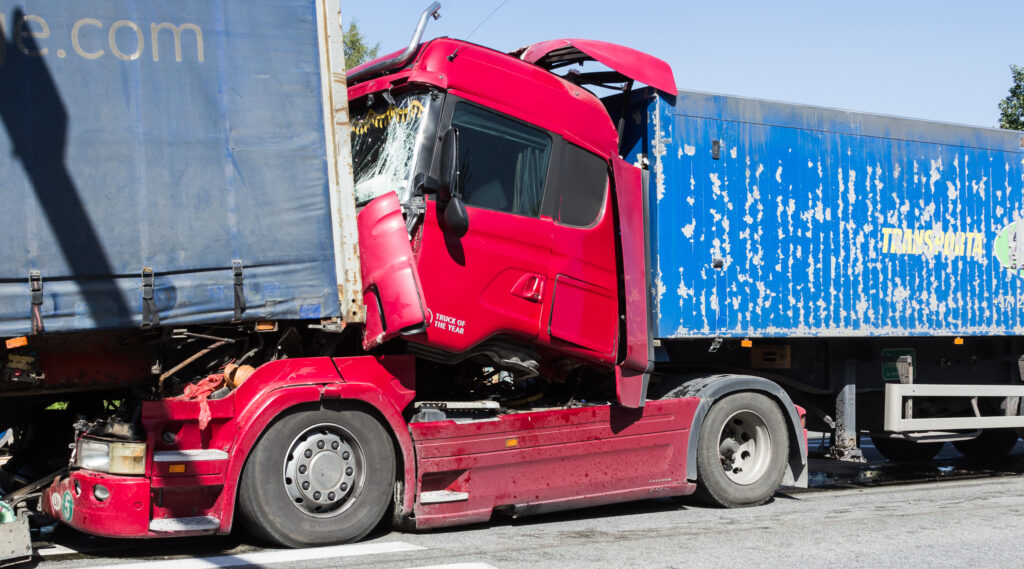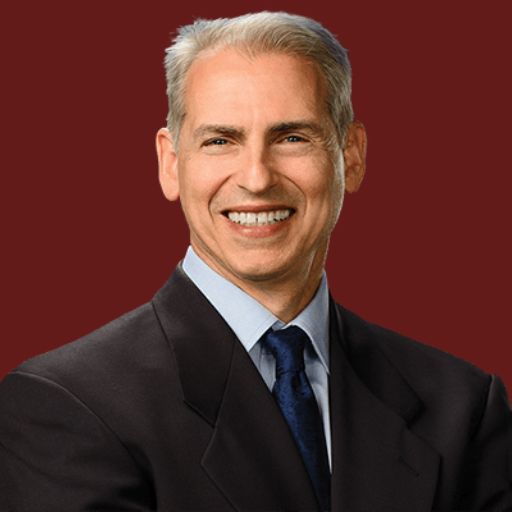
If you are partly to blame for a trucking accident you were involved in, you may still deserve compensation from others who share the blame (or their insurance provider). Most states use a comparative fault system, which means that at-fault parties are financially responsible only to the degree that they are at fault for an accident. Consulting experienced Bakersfield truck accident lawyers can help you navigate these complex legal matters and protect your rights.
To explain, assume you are deemed 25 percent responsible for a trucking accident. If your damages cost $100,000, you would have to remove 25 percent of that figure when seeking compensation from another at-fault party. Therefore, you would be entitled to receive $75,000 from liable parties—as opposed to the $100,000 you would deserve if the other party was solely at fault.
How Can Two or More Parties Be to Blame for the Trucking Company?
If a truck slams into a vehicle stopped in traffic, it’s usually a clear-cut case of fault. There are many other circumstances, though, in which two motorists—or other parties—share fault for the collision.
A few examples in which two parties may be at fault for a trucking accident are:
- An accident in which a drunk truck driver who is proceeding through a green light is hit by a car driver who runs a red light
- A situation in which a car driver merges dangerously in front of a truck, and the truck driver cannot brake before hitting the car because the truck’s brakes are defective
- A collision in which a speeding motorist strikes the rear of a motor vehicle when the driver in front stops without apparent reason for doing so
In each of these scenarios, one can argue that both parties are responsible to some degree for the accident. When it is clear that at least two parties are responsible for a truck accident, the question becomes: Who is responsible for what percentage of the blame?
Drivers Are Not the Only Parties Who Can Be Responsible for a Truck Accident
While insurance companies and attorneys often find that at least one motorist is responsible for a truck accident, these aren’t the only parties who can cause or contribute to accidents. Other parties that can share fault for a truck collision include:
- Motor vehicle and cargo trailer manufacturers, who can be at fault if their equipment malfunctions, they fail to warn purchases about potential hazards properly, or if they fail in any other way that contributes to a truck accident
- Trucking companies, which may fail to screen or train employees, fail to service or replace outdated or defective equipment, or commit several other shortcomings that contribute to an accident
- Municipalities, which are generally responsible for hazardous road conditions that result in injury or death
- Pedestrians, who may trigger an accident if they enter the roadway abruptly, throw debris into the path of a motor vehicle, or take any other action that leads to an accident
Trucking companies are regulated by detailed rules, which the Federal Motor Carrier Safety Administration (FMCSA) establishes and enforces. These rules are meant to reduce the risk of truck accidents, and your lawyer will determine if anyone violated FMCSA regulations on the way to causing your accident.
Common Causes of Truck Accidents (Which May Be Relevant to Your Case)
When your attorney, insurance companies, and other parties are determining the share of fault for a truck accident, they must first learn why the collision happened. If multiple parties are at fault, the accident may have resulted from some combination of the following:
- Driver error: Drivers who speed, tailgate, change lanes without checking blind spots (a serious issue for truck drivers whose vehicles have large blind spots) and engage in other dangerous behaviors risk causing accidents. This is true of both truck drivers and drivers of other motor vehicles.
- Driver impairment: Drivers who are under the influence of alcohol or drugs, tired, emotionally unsettled, or impaired by health conditions are dangerous to themselves and others.
- Vehicle malfunction: Trucks can be particularly susceptible to defects. Their designs are complex, and cargo trailers add another variable (and trailers can be defective). Trucks and trailers undergo substantial wear and tear that can contribute to equipment malfunctions.
- Hazardous road conditions: There is a significant portion of American roads that fall below acceptable safety levels. Potholes, uneven surfaces, construction work that interferes with the roadway, poor lighting, absent signage, and defective traffic lights are among the hazards that can lead to truck accidents and make a municipality at fault for such accidents.
Your attorney will determine if these or any other inciting conditions caused your accident. They will weigh the degree to which each cause contributed to the accident and assign fault accordingly.
Who Determines the Share of Fault for a Trucking Accident?
Insurance adjusters are typically responsible for assigning fault for trucking accidents and other traffic collisions. Because insurance companies are most often responsible for paying parties involved in the accident, it’s logical that they will determine the share of fault.
That being said, insurance companies do not always accurately assign blame for a trucking accident. If you believe one or more insurance companies assigned you more blame than you deserve, your trucking accident lawyer can challenge the decision. If the insurance company does not correct the decision, you and your lawyer may file a lawsuit against them for bad-faith tactics.
Insurance Companies Do Not Always Assess Fault Accurately—It’s One of Many Reasons You May Hire a Truck Accident Lawyer
It’s wise to assume the worst will happen with your case. This way, you can protect yourself and be ready for any challenges. The most common way to prepare for potential roadblocks is to hire an experienced truck accident lawyer.
Your attorney will have a strategy to address any of the challenges that truck accident victims can face after the collision, including:
- The inaccurate assignment of fault for the accident: If you and your attorney decide that you were unfairly assigned blame for the truck accident, your lawyer will take the necessary steps to appeal the decision. In their appeal, your attorney may include accident-related evidence and argue their case clearly and comprehensively.
- Bad-faith tactics by insurance companies: Insurance companies make mistakes but may also intentionally engage in bad-faith tactics. Such tactics generally aim to save the insurer money, which often means depriving the claimant of much-deserved compensation. Lowball settlement offers denied claims, and delays are among the bad-faith tactics you might face.
- Liable parties withholding evidence from you: It’s often true in truck accident cases that a liable party—like a trucking company or cargo-loading operation—has evidence that can be useful to the accident victim. Liable parties do not typically volunteer such evidence; they may conceal or dispose of it. Your truck accident attorney will take any necessary legal measures to secure evidence from a trucking company or other liable parties.
- The difficulty of securing a fair financial recovery for you: Negotiating or winning fair compensation for a truck accident victim is always challenging. When an accident victim receives compensation, somebody has to give that money up—they will almost certainly take some convincing before they’re willing to part with their money.
Your truck accident lawyer will take on every challenge they face during your case. Allow an experienced attorney to fight for you while you focus on healing.
Evidence Your Attorney May Use to Prove Who Is Most at Fault for the Trucking Accident
The evidence can be the deciding factor when deciding who is to blame for a trucking accident. Some types of evidence your attorney may use to prove that you have a smaller portion of fault for the accident—or no fault at all—include:
Statements from Those Involved in the Accident
Those involved in an accident often have the clearest perspective. Your attorney may build their case with:
- Your firsthand perspective of how the truck accident happened
- The account of the accident from any other at-fault party
- Any admission of wrongdoing by the party who caused your accident
These statements may come from you, a police report, insurance companies, or other sources. An admission of negligence by any at-fault party may be particularly valuable to your case.
Witness Statements

Eyewitnesses can provide detailed, unbiased accounts that are relevant to your case. These accounts may relate to:
- A pattern of negligent behavior by the at-fault party
- Circumstances that led to the accident (like a truck driver operating the vehicle erratically in the time leading up to the collision)
- The accident itself
- Statements the at-fault party made to witnesses after the accident
Your attorney may interview witnesses to get their statements and obtain any existing statements from a police report or other sources.
Video and Photographs
They say a picture is worth 1,000 words, and that truism indicates why photographs can be valuable evidence in a truck accident case. Video may be even more impactful.
Your attorney will scour traffic cameras, security cameras, and other recording sources for relevant video. They may take photographs of vehicle damage or secure existing photos that contribute to your case.
Expert Testimony and Services
Your trucking accident lawyer should be willing to invest in your case, and hiring experts can have a high return on investment. One or more experts may contribute to your case in a variety of ways, including by:
- Testifying about who they believe caused the accident (and what share of fault all at-fault parties have)
- Interpreting evidence
- Reconstructing the truck accident
An expert may also discuss any pattern of negligence that contributed to your accident, such as a trucking company failing to train its drivers properly.
More Steps Your Lawyer Will Take to Build Your Case
Obtaining evidence of fault is a vital step in a trucking accident case, but it is just one of many such steps. Your lawyer will build on evidence of fault by:
Showing How the At-Fault Party’s Negligence Has Caused You Harm
The value of a truck accident case is tied directly to the accident victim’s damages. This makes it critical for your lawyer to prove your damages in as much detail as possible, and they may use:
- Testimony from experts, which may include medical doctors, mental health professionals, experts or economists knowledgeable in your professional field, and others
- All medical bills and records that are relevant to your case
- Invoices for vehicle repairs, temporary transportation, and any other expenses related to damaged property
With your consent, your attorney may secure bank statements illustrating lost income after the accident.
Establishing a Specific Case Value
Your attorney and their financial experts will determine the exact financial value of your case. This valuation will include both the economic and non-economic cost of your damages. Attorneys have specific methods for calculating pain and suffering, which is considered non-economic damage.
Negotiating a Settlement on Your Behalf
You surely want an efficient, fair resolution to your case. This is why most truck accident attorneys seek settlements to start their clients’ cases.
Advising You About Whether to File Suit (and Honoring Your Decision If You Elect to File)
As your lawyer engages in settlement negotiations, they should gain a feel for whether liable parties are negotiating in good faith. If you and your lawyer collectively determine that legal action is necessary, your lawyer can:
- File a lawsuit
- If filing a lawsuit does not prompt liable parties to offer you a fair settlement, proceed to trial.
Your attorney’s advice may be a comfort and an asset to your case.
What Damages Can I Get Compensation For After a Truck Accident?
While each trucking accident victim faces their own injuries, challenges, traumas, and expenses, some common damages in cases like yours include:
- Pain and suffering
- Healthcare bills
- Lost income
- Property costs
Trust your lawyer to communicate and seek fair compensation for your unique damages.
Hire a Truck Accident Attorney After the Collision

Mickey Fine, Truck Accident Attorney
It’s smart to hire a truck accident lawyer as soon as possible after the collision. Your case may be subject to several deadlines, and you likely also want to complete the case as soon as possible. Your attorney will get the right to work once you sign with them.
